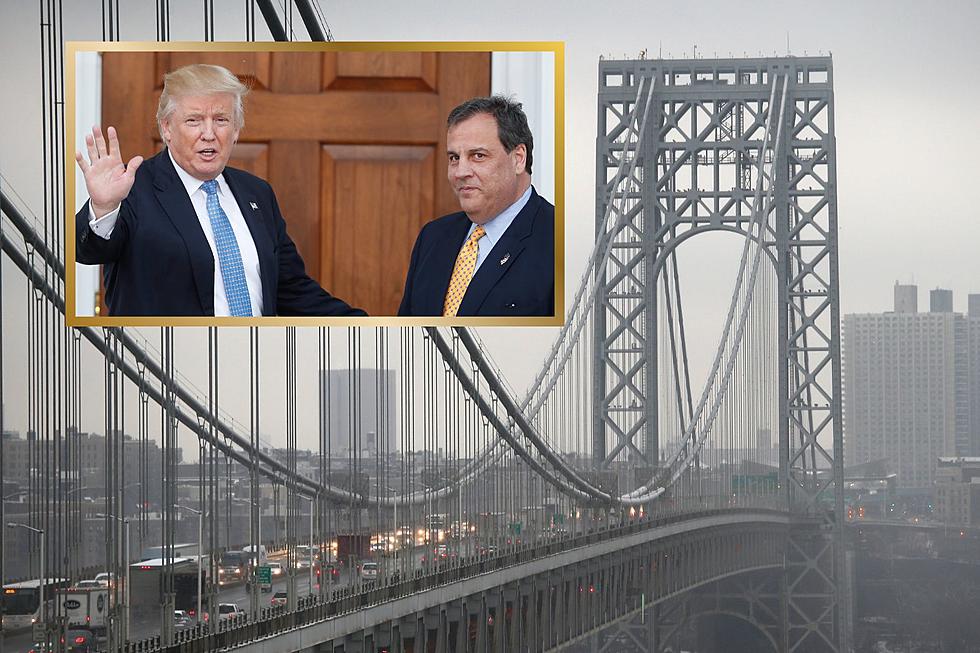
Will your primary vote matter this year, NJ? It depends …
Will New Jersey’s typically irrelevant presidential primary matter this year?
We’ll know Tuesday night.
Five large states are holding primaries, and if rivals to front-runner Donald Trump take the winner-take-all contests in Florida and Ohio, New Jersey’s June primary could help determine if Trump wins a majority of the delegates or if there’s a brokered Republican National Convention.
“I actually think New Jersey has a shot of making a difference,” said Seton Hall University political scientist Matthew Hale. “A lot of things have to go a certain way. John Kasich has to win Ohio. Marco Rubio has to win Florida. But I think that there’s a determined effort by the Republicans to try and stop Donald Trump before the convention. And if they are successful in that, then New Jersey is certainly going to play a role.”
New Jersey’s primary is June 7, when 51 delegates will be selected in a winner-take-all contest. It will not be the largest of that day’s five prizes, as California will decide 172 delegates in a primary in which most delegates are awarded to the winner in each of the state’s 53 congressional districts.
Gov. Chris Christie, at a Statehouse news conference earlier this month, said he’d guess that New Jersey’s primary won’t matter. He said it’s difficult to predict where Trump will stand at the start of June but that “probably well before that, this will be over.”
“My guess is that this will be over well before then – functionally over well before it, and literally over before it,” said Christie, who endorsed Trump after ending his own bid for president.
To be nominated for president at the Republican National Convention in Cleveland in late July, a candidate must be supported by at least 1,237 of the 2,472 delegates.
To get there, Trump needs 54 percent of the delegates that remain – including Tuesday’s big contests in North Carolina, Illinois and Missouri, as well as Florida and Ohio. If he loses winner-take-all states such as Florida and Ohio, his path to a clear majority of the delegates becomes a lot more muddled.
One-fourth of the remaining Republican delegates are being awarded Tuesday.
Christie said Republicans would be taking a risk if Trump has the most delegates but isn’t nominated.
don’t think Republicans do well by telling the voters they’re wrong.
“I don’t think Republicans do well by telling the voters they’re wrong. I just don’t understand this. It would be like me staying in New Hampshire after Feb. 9 and going, ‘Wait a second. Can we have a do-over here please? Because you’ve obviously made a gross mistake here.’”
“It’s a very dangerous thing for members of the Republican Party to be telling the voters: If you give the overwhelming majority of your votes to a particular person and we don’t prefer that person, then we’re not going to give it to them,” Christie said. “You want to see the party break up? That’s when you’ll see the party have a big problem.”
Trump received 35 percent of the nearly 12.5 million votes in the first 24 Republican contests and 44 percent of the delegates awarded so far. He is almost 765,000 votes ahead of second-place U.S. Sen. Ted Cruz, who has received 28.7 percent of the vote. Rubio is next at a little under 20 percent.
(Christie, incidentally, continues to appear on most states’ ballots and is still receiving votes. He has gotten 40,377 votes to date but fell behind Sen. Rand Paul into eighth place in the March 8 contests.)
Hale said Kasich might do well in New Jersey, if he’s still in the race. The state is generally more moderate, and that’s the role Kasich has filled in the race. Kasich has been endorsed by former New Jersey Gov. Christie Whitman.
“The polls for Donald Trump in New Jersey are sort of mixed,” Hale said. “I certainly think that Chris Christie’s endorsement of him makes it a little bit more likely, perhaps, that Donald Trump can take New Jersey with some gubernatorial arm-twisting, but I think it would be a competitive state for Republicans.”
There’s been just one presidential primary poll done in New Jersey in the last four months, and it showed Trump with an advantage.
The Rutgers-Eagleton Poll done in February measured Trump’s support at 38 percent. He was trailed by Rubio at 11 percent, Cruz at 10 percent and Kasich at 8 percent, with 21 percent of voters choosing one of the candidates who were then running but are no longer in the race.
Kasich or Rubio seems to be, to me, more in tune with the Republicans in New Jersey
In the portion of the Rutgers-Eagleton Poll conducted after the Feb. 9 primary in New Hampshire, Kasich’s share of support went from 2 percent to 11 percent.
“Kasich or Rubio seems to be, to me, more in tune with the Republicans in New Jersey,” Hale said. “If either of those candidates is still around, New Jersey could do well by them.”
Christie, who dropped out of the race the day after the New Hampshire primary, was at 15 percent before New Hampshire, then at 3 percent after, when he was dropped from the list of candidates.
The Rutgers-Eagleton Poll’s margin of error among Republican voters was +/- 7 percentage points.
Among Democrats in the Eagleton-Rutgers Poll, former Secretary of State Hillary Clinton was ahead of U.S. Sen. Bernie Sanders, 55 percent to 32 percent. That side of the poll had a margin of error of +/- 6.2 percentage points.
Michael Symons has covered the Statehouse since 2000. He can be reached via email at michael.symons@townsquaremedia.com or @MichaelSymons_ on Twitter.
More From New Jersey 101.5 FM









